James Rodriguez: How did the little Colombian with a stutter get here?
From being so shy he could barely speak to so good that he's known by his first name, Martin Mazur reveals how 'Ha-mez' became one of the hottest players on the planet – and a high-flier in the FFT100...

“Good work, kids, see you tomorrow.” It’s the summer of 2004 and the training session at El Dorado, the small club which functions as the academy for Colombian side Envigado, has just ended. While most of the players rush to the dressing room to escape the baking afternoon sun, one of them remains on the pitch, alone. Nobody is surprised.
Little James, 13-years-old, is so shy that some of his team-mates have yet to hear him speak. And those who have heard him utter a rare word know that everything he says is faltering and hesitant due to his stutter. Luckily, James has another mode of communication: his feet. In a very real sense, they do the talking for him. Which is why he’s still training as his team-mates head home.
Half an hour later, El Dorado’s manager leaves too, yet James remains, taking shots at an empty goal. Ten years later, that kid would become the latest Galactico, the 2014 World Cup’s top scorer and the prodigal son of an entire nation. Those who have known James David Rodriguez since he was a kid aren’t surprised by his spectacular rise.
I’ve never seen a kid of that age training twice a day without complaining. The discipline he was taught was fundamental"
Forget Cinderella stories. James – or ‘Ha-mez’ as the world now knows him – didn’t grow up playing street football with a ball made out of old socks. He didn’t abandon school and forgo his studies for a kickabout with friends. His is not the typical South American story of rags to riches. His rise is more akin to that of Kaka than Carlos Tevez; a middle-class upbringing with options. James chose football. His career was forged with cones, boards, instructions and tears. “I’d always liked football, but it was my stepdad who took me to the academy in Tolima, when I was five – that’s how I started,” said James, reflecting on his early career.
His first boots, a pair of black and white Adidas, were also a gift from his stepfather, Juan Carlos Restrepo, who had played for the Tolima reserves before quitting to work as an engineer.
“James never wanted to be a footballer, but he was a footballer from the day he was born,” said his mother, Maria de Pilar Rubio, who his first professional manager credits with his incredible work ethic. “James is a clear product of his parents’ efforts,” says Hugo Castano. “I’ve never seen a kid of that age training twice a day without complaining. The discipline he was taught was fundamental.”
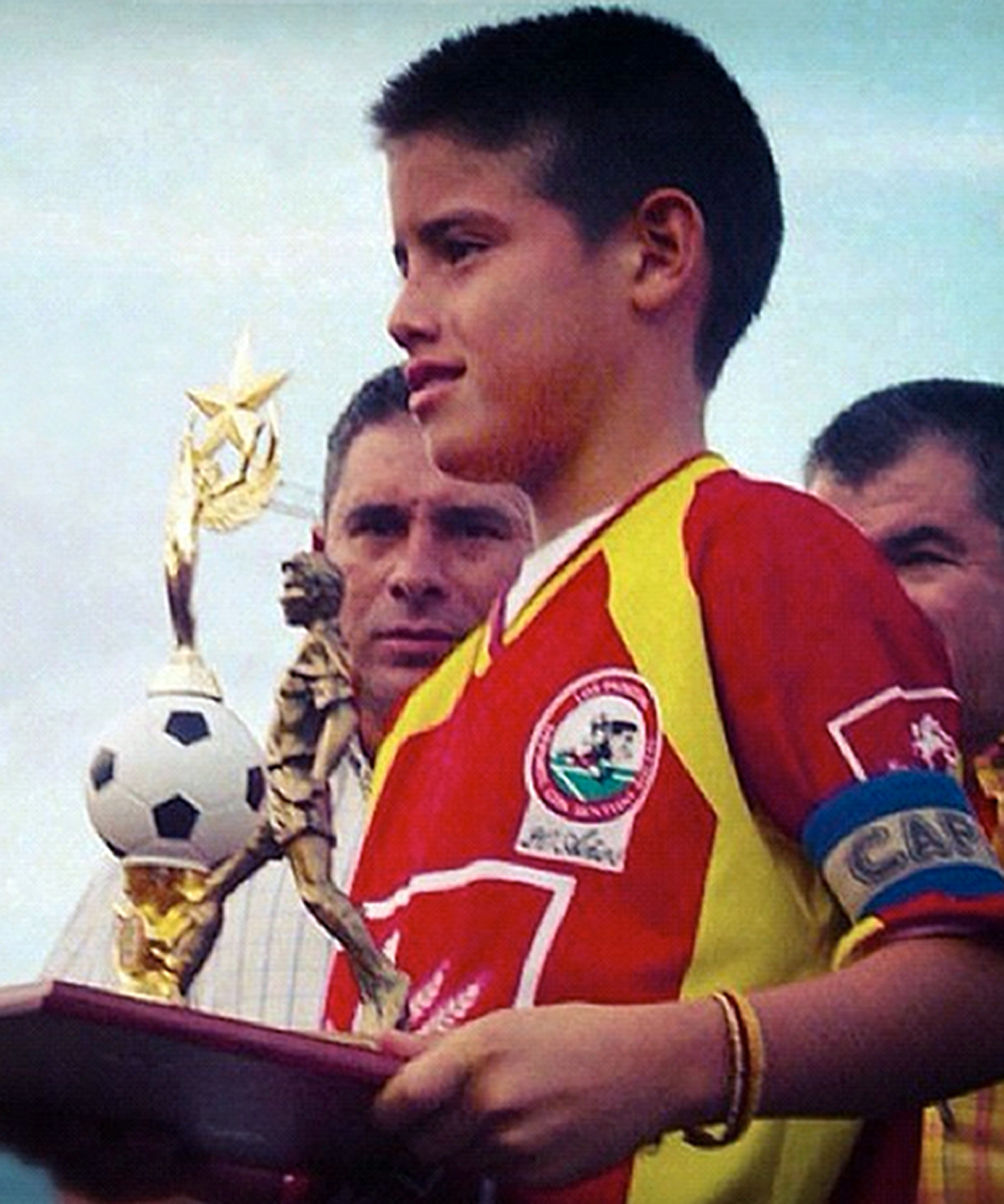
This discipline came through top coaching: James had private football tutors, on top of the ones from his clubs. Every day, the bar was raised. On top of working on technique and tactics, he also went to the gym to bulk up so he could stand up to his older team-mates.
Get FourFourTwo Newsletter
The best features, fun and footballing quizzes, straight to your inbox every week.
While normal people go out and stay up late, the player must eat well, go to bed early and take a nap after lunch"
It’s the sort of pressure usually reserved for tennis players, gymnasts or golfers: sportsmen unrestricted by the availability of team-mates. For James, it was different. “I’ve always said that the footballer needs to be abnormal,” he said in an interview in 2007. “While normal people go out and stay up late, the player must eat well, go to bed early and take a nap after lunch, but I never thought it was a sacrifice.”
And it’s this dedication that has brought the attacking midfielder to the world’s attention. Because despite being the best player for every team he played for growing up, he didn’t believe the hype.
The result is that he has been the most-talked about player in world football for the past few months. After all, most players aren’t identifiable by their first name alone. But then Ha-mez isn’t most players.
His uncle was killed in a fight with a street gang
James Rodriguez was born in Cucuta, on the Venezuelan border, while his father, footballer Wilson James Rodriguez, was playing for the city’s top club, Deportivo. But Wilson left home when James was three, and the youngster found himself moving to three different cities in his early years.
Like anyone who grew up in Colombia in the ’90s, his story is marked by the period of bloody feuds, street executions and vendettas that were part of everyday life under the reign of Pablo Escobar, the country’s infamous drug lord, who happened to be a big football fan.
One year and one week after the killing of defender Andres Escobar, his uncle Arley was shot six times and died"
James’s uncle, Arley Rodriguez, a promising 19-year-old midfielder for Independiente Medellin, was killed in 1995. He and his friend had gone to the hospital to treat cuts they had received after a gang tried to rob their motorcycle. They fought back, but were injured in the fight. When they left the hospital, thugs were waiting for them. One year and one week after the killing of defender Andres Escobar following USA 94, Arley was shot six times and died along with his friend. “First Andres, now Arley – nobody knows who’s going to be next,” said Arley’s then-team-mate and future Aston Villa forward, Juan Pablo Angel.
At the time, James was living far from the chaos of Medellin, in Ibague, and playing against older kids for Academia Tolimense. “James had great feet and was an intelligent, centred boy,” says the manager of that youth side, Alvaro Guzman. “First we competed in local tournaments, then we started travelling across the country, and his name became more and more famous.”
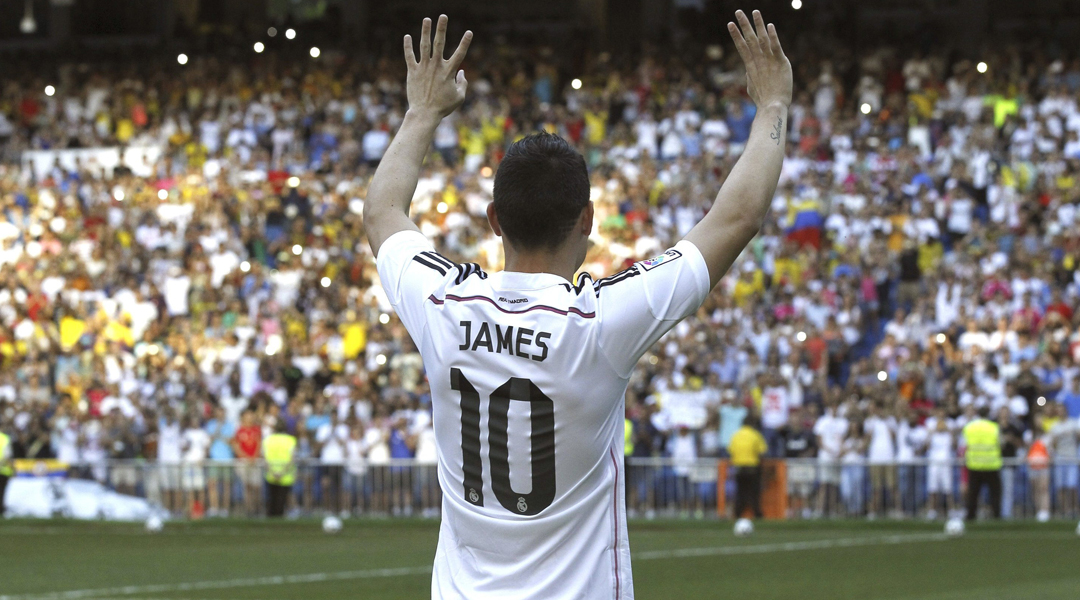
A former team-mate, Diego Norona, recalls when an underage James had just been promoted to his age group. “There was a free-kick and I usually took them. But he grabbed the ball with so much conviction that I let him have it,” says Norona. “Without saying a word, he curled it outside the wall and scored a stunning goal. Our usual training was to try to go over the wall, never outside the wall. We quickly understood that he was special.”
It wasn’t just his ability that marked him out as different; his crippling shyness would become a concern for those working with him. “He was a good listener, but at the same time we were a bit worried that he didn’t show his emotions,” says another Academia Tolimense coach, Jose Cortes. “We worked with psychologists because he was very passive.”
He was a good listener, but at the same time we were a bit worried that he didn’t show his emotions"
Winning the Ponyfutbol Cup – Colombia’s premier youth tournament – in Medellin was Rodriguez’s confirmation that he would be a pro. The 11-year-old scored 13 goals in nine games, including two directly from corner-kicks in the final. Among the 5,000 spectators was an impressed Gustavo Adolfo Upegui Lopez, patron of Envigado FC and good friend of Pablo Escobar. “We have to sign this kid,” he said from the stands.
Upegui Lopez, who started working for the Envigado academy (on the outskirts of Medellin), later became the club’s major shareholder.
In 1998 he was arrested and accused of running a band of contract killers. Or, as the newspaper Semana put it, of “setting up a confederation of bands that were cut loose from the Medellin cartel after the death of Pablo Escobar”. The Envigado Office, they called it. With this in mind, it’s not a big surprise that the club has witnessed the murder of three of their presidents, plus one member of the board, in the last two decades.
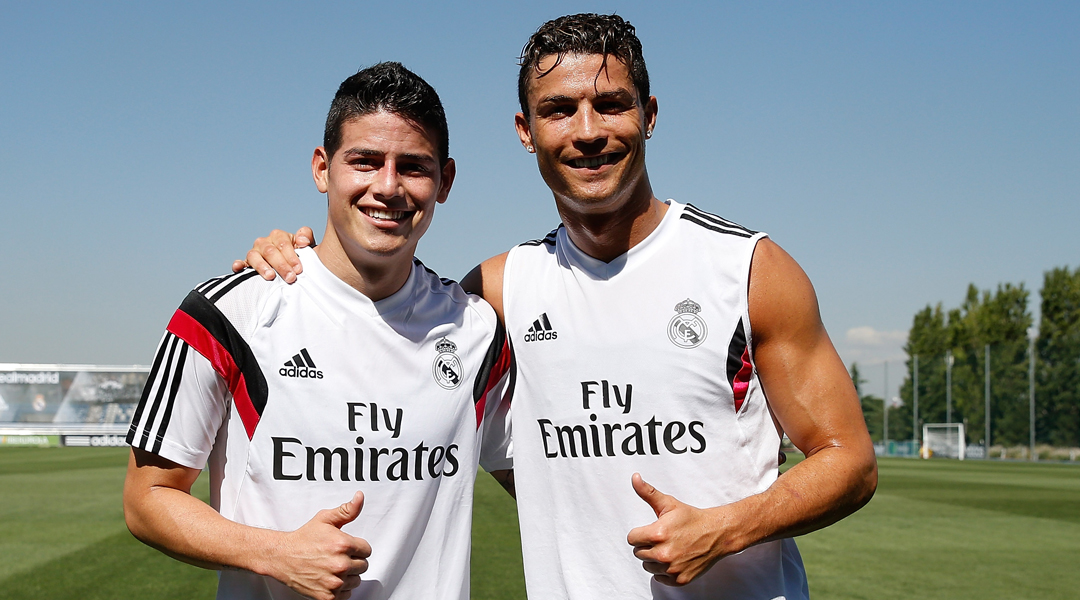
Signalled as the second in command of the Envigado Office, Upegui Lopez was seized following a game against Independiente Bogota by undercover officers disguised as fans. But after spending 32 months in jail (first in Bogota and then in the high-security prison of Itagui), charges were dropped and his name was surprisingly cleared.
Upegui Lopez lived like a tsar, on a highly-guarded farm. His assassination, eight years ago, was like something from a Martin Scorsese movie. Eight men broke into his ranch at 3am, bound and gagged 20 family members and staff, including two sets of bodyguards, and got to Upegui Lopez’s room in silence.
Once in, they tied him up, escorted him to a sofa and shot him in the head using a pillow as a silencer. It was July 2006, 35 days after Upegui Lopez witnessed the professional debut of his gem, a 14-year-old James Rodriguez, in a game against Cucuta.
Reading books out loud, he overcame his stutter
In a couple of seasons, it was clear Envigado had given him everything they could, even if their ground was far from state-of-the-art. “No grass, just sand and dust that in bad days was flying all over us,” recalls Envigado’s manager at the time, Edgar Ramirez. So when Argentine clubs came knocking, James’s mother was willing to listen to offers. Especially because Upegui Lopez, the usual guardian of her son’s interests, was dead and Envigado was going through turmoil. Boca Juniors appeared to be close to signing him (as they did with his team-mate Fredy Guarin), but Banfield outbid them and secured his services for £250,000.
Manager Jorge Burruchaga wouldn’t even call him by his name, preferring instead to refer to him dismissively as “the Colombian”
If there was a place on Earth where James could carry on with his obsession for football and training, it was Banfield. But the first year (2008) wasn’t easy. He went from playing in the top flight to training with the reserves, where manager Jorge Burruchaga wouldn’t even call him by his name, preferring instead to refer to him dismissively as “the Colombian” (or, worse, “the Little Colombian”). It wasn’t an encouraging message for a 16-year-old alone and far from home. James felt he’d made a mistake. The strange name pronunciation wasn’t taken into account, either: they’d just call him James, or Jesse (as in Jesse James) – never ‘Ha-mez’. Freezing temperatures were depressing, too, compared to the tropical weather of Medellin.
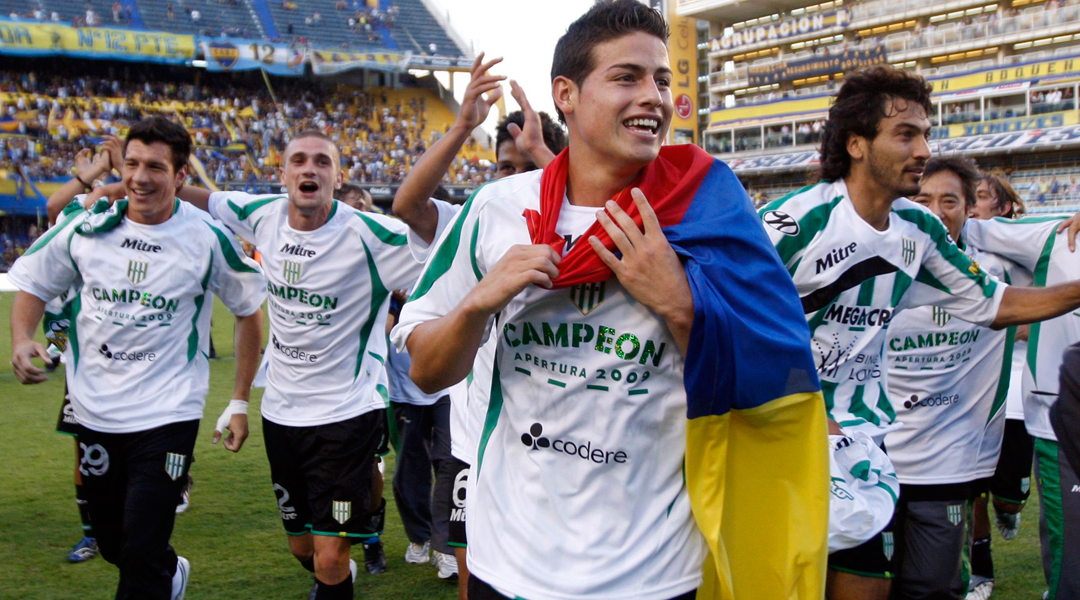
But in his first interview in Argentina, he was typically pragmatic about his reasons for being there: “This is a perfect league to keep growing as a player and to jump into European football, which is my dream. I like watching as many matches as I find on TV.” He had already scored a goal for the reserves that was an exact copy of the amazing volley he netted against Uruguay in the World Cup.
Compatriot Jairo Patino made sure he didn’t give up. James was not living in the club pension lodge but alone in a flat in Palermo, a couple of hours away by public transport. When James didn’t get a ride back home with a team-mate, he’d ask the club employees for change for the bus.
At the time, however, getting money for the bus was a difficult mission in Argentina as the country was going through a coin shortage, so James would often get stuck. It was time to get his own wheels. “It was an uncle who took me to an old factory and gave me his VW Golf – that was the first vehicle I drove,” he recalled of his first car back in Colombia. At Banfield, he used his wages to buy a Peugeot 205.
When pre-season came around, things were looking up except for one major issue: all players that train with the first team have to endure an initiation ceremony.
In this case it was administered by goalkeeper and captain Christian Luchetti, who clumsily shaved the heads of all the new recruits, including a horrified James. With his confidence and well-coiffed head of hair in tatters, the phonecalls home increased. He wanted to leave.
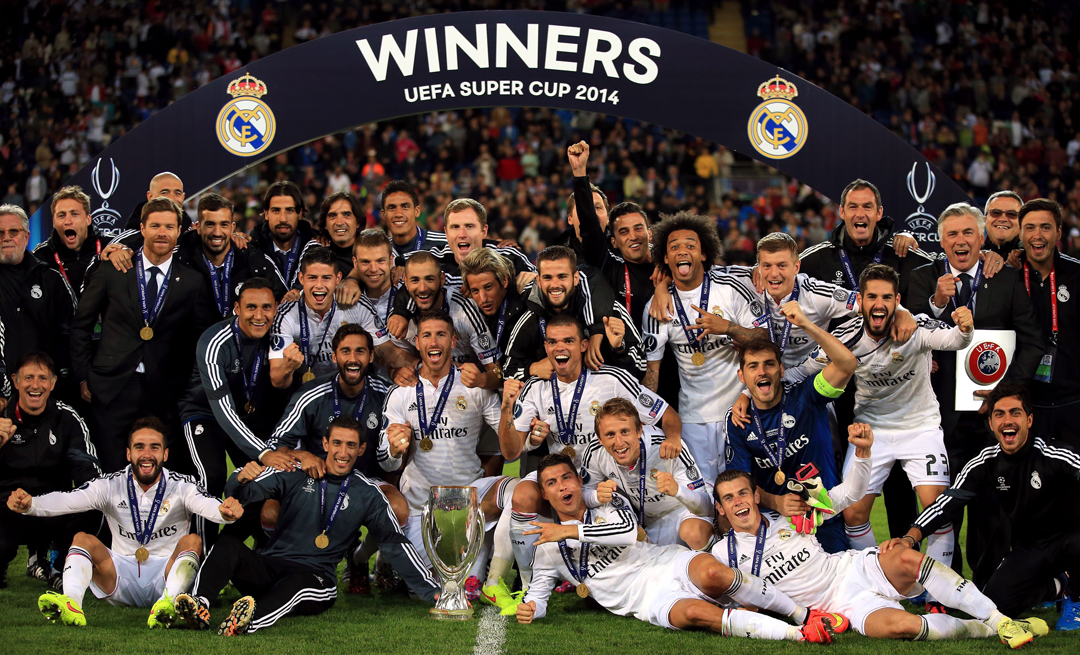
“I would try to speak to him for just two minutes every day, because long-distance calls were expensive,” recalls his mother. “I just wanted to remind him to go to sleep early, to keep the house tidy, to arrive early to training sessions and to make him remember that God was blessing him.”
When former Argentina goalkeeper Julio Falcioni took over as manager, training sessions intensified. He felt he couldn’t survive. He was accused of being too slow, kicked for being too talented, frowned upon for having a history in top-flight football and for being the favourite player of those on the board. Crying was an everyday fact in the life of James.
James got off the bus... Porto had signed him
It was Falcioni who asked James’s mother to come and live with him in Argentina, because he’d noted the positive impact she had on him when she had travelled to sign his contract.
As always, James persevered. And again, it paid off. At 17, he became the youngest foreigner ever to play in the Argentine league, and also the youngest to score a goal. He eventually helped minnows Banfield to win the league title for the first time in their history with eight goals in 38 games.
His hair had grown back and he had come out of his shell, introducing his team-mates to his favourite reggaeton music and the dance moves that normally accompany it (the same moves you saw from Colombia at the World Cup this summer). By practising to read books out loud, he had also overcome his stutter.
He was accused of being too slow, kicked for being too talented, frowned upon for having a history in top-flight football"
The Banfield teenagers were all in love with him, but he had already found the love of his life, Daniela Ospina, sister of Colombia (and now Arsenal) keeper David Ospina. They got married and have a daughter, Salome.
“I will always be grateful to Falcioni,” said James about his time at Banfield. “In Argentina I developed my body, learned how to use it better and understood how to play for the team in defence, not just in attack.”
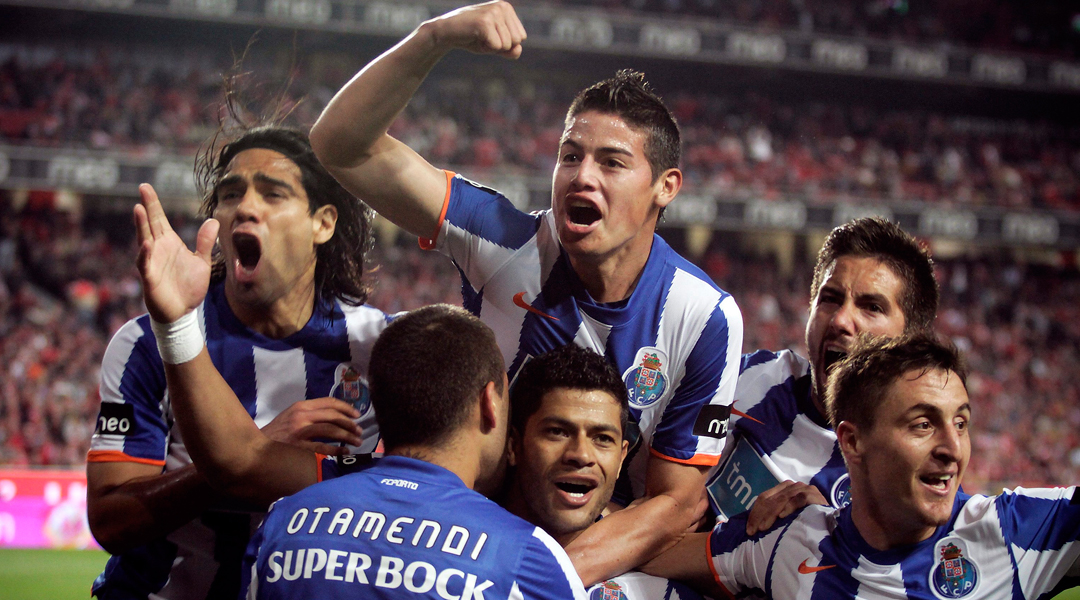
The next five years went by at high speed. James was on the bus with the rest of his team-mates leaving to Mar del Plata when Falcioni was asked to get off. He talked to a board member and then lit a cigarette.
Moments later, a Banfield official got on and announced that James had just been sold. He was congratulated by his team-mates, who targeted his combed hair as a way of saying goodbye. James then got off the bus, picked up his bag and left in a taxi to Ezeiza airport. Porto had signed him for €5 million.
In Portugal, while he was busy winning three consecutive league titles, the Europa League and becoming the country’s revelation, he also took time to study computer engineering, like his stepdad.
He represented and won the U21 Toulon tournament with Colombia in France, and was later called up for the national team in the qualifiers. Then Monaco paid £38m for him to join compatriot Radamel Falcao.
This summer, he inspired Colombia to their best ever World Cup performance and in doing so captivated the watching world. And so to a dream move to Real Madrid, for £71m. For the kid who honed his skills on that dusty pitch for El Dorado, it was like finding the Lost City of Gold.
